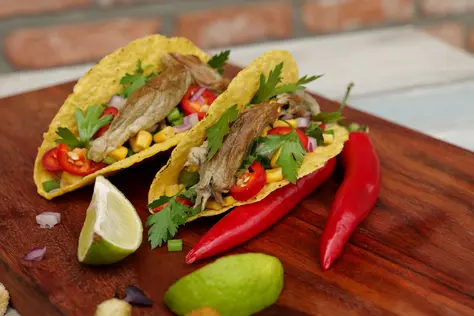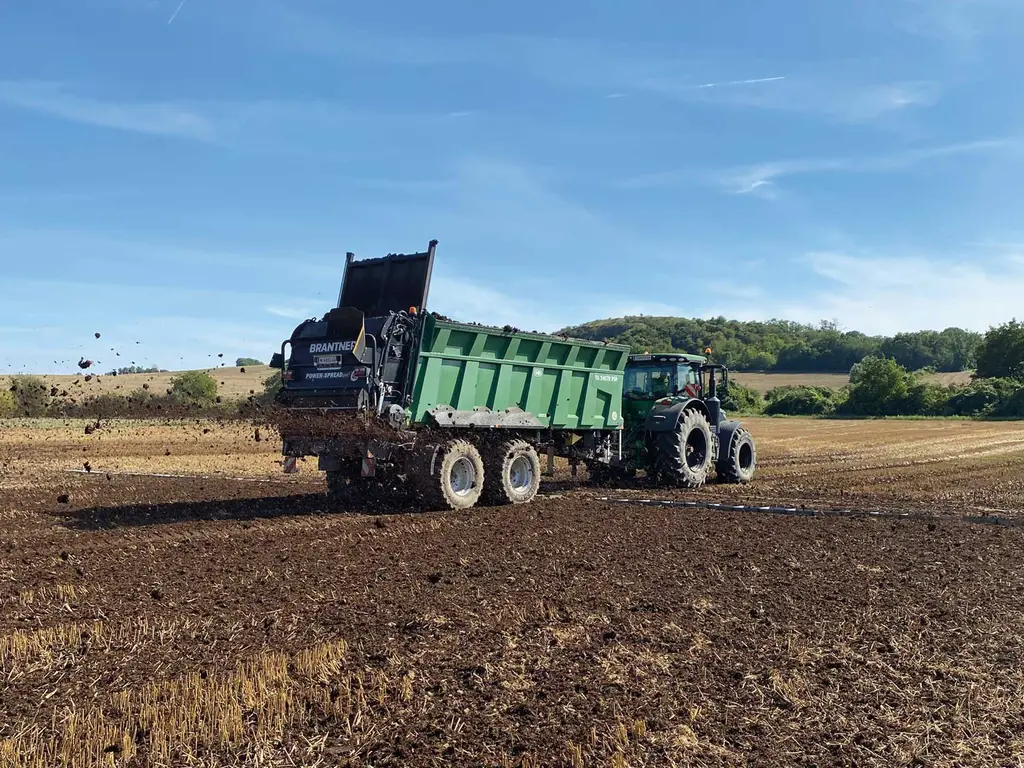The event organized by Friends of Thai Agriculture highlights sustainable solutions for air pollution caused by crop burning in Thailand and Southeast Asia.
Bangkok, October 1, 2024 – Over 250 agricultural experts, 16 Thai media groups, diplomats, policymakers, and private sector leaders convened at the conference on ‘Reduction of Air Pollution through Avoidance of Burning in Agriculture’ to address one of Thailand’s most pressing environmental issues—agricultural burning. Organized by the Friends of Thai Agriculture (FTA) and the international organizations DLG – German Agricultural Society, GETHAC, GIZ Thailand, Winrock International and UNESCAP Centre for Sustainable Agricultural Mechanization, the conference presented innovative solutions to reduce hazardous PM2.5 pollution caused by rice, maize, and sugarcane burning in Thailand.
Context and Extent of Agricultural Burning in Thailand
Agricultural burning in Thailand is a leading contributor to harmful PM2.5 pollution, which causes over 2 million hospital visits annually. With 83% of Thailand’s crop residue burning attributed to rice, maize, and sugarcane, the need for sustainable solutions is critical. Rice alone produces 20 million tons of straw annually, much of which is burned post-harvest, while maize burning contributes significantly to both local air pollution and transboundary haze across Southeast Asia.
Highlights from the Conference
Mr. Prayoon Inskul, Permanent Secretary of the Ministry of Agriculture and Cooperatives, highlighted the economic and environmental impacts of agricultural burning during his opening remarks. He underscored the value of agricultural residues, such as rice straw and corn stubble, as resources that can be integrated into a circular economy, particularly through biomass-to-energy initiatives. Mr. Inskul outlined the Ministry’s “3R Model” as a key policy to mitigate agricultural burning: Re-Habit, promoting non-burning practices through the adoption of eco-friendly technologies and standards; Replace with High-Value Crops, encouraging farmers to shift to more profitable crops like fruit trees; and Replace with Alternate Crops, advocating for better residue management and the introduction of crops that require less burning.
The conference opened with plenary keynotes from leading experts. Dr. Somporn Chantara, Head of the Environmental Science Research Center at Chiang Mai University, emphasized the pressing issue of air pollution caused by open burning in Southeast Asia, particularly in Northern Thailand. With forests covering a vast area and agricultural practices contributing to burning, she highlighted the need for urgent action. Prof. Witsanu Attavanich, Co-founder of the Thailand Clean Air Network (ThaiCAN) and an environmental economist, highlighted the critical role of agricultural burning in Thailand's air pollution crisis. His presentation explored the causes of burning in rice, maize, and sugarcane fields drawing from farmers’ perspectives, and discussed the Thai government's efforts and policy gaps in addressing the issue.
A thematic plenary panel, moderated by Marion Chaminade, Regional Agricultural Counsellor from the French Embassy, covered three thematic areas for reducing agricultural burning: mechanization, soil fertilization, and new value chains. Engr. Martin Gummert, Subject Matter Expert on Mechanization and Postharvest, discussed the role of mechanization in providing efficient alternatives to burning. Dr. Natthapol Chittamart, Associate Professor at Kasetsart University, highlighted the importance of sustainable soil management and improving soil health without resorting to burning. Mr. Arvind Narula, Founder of Urmatt Ltd., explored how agricultural residues could be transformed into marketable products, creating new value chains from what is typically considered waste. "The problem is endemic, but commercially viable solutions can drive immediate reductions in burning," said Arvind Narula, Founder of Urmatt Ltd.
In the afternoon, parallel sessions on rice, maize, and sugarcane identified mechanized harvesting, new processing methods, and soil health innovations as key solutions to reducing burning. The conference concluded with a Plenary Press Preview, where the crop-based parallel sessions were wrapped up. Special remarks were delivered by Dr. Dares Kittiyopas, President of the Thai Society of Agricultural Engineering.
Dr. Pongthai Thaiyotin, Deputy Director General of the Department of Agriculture, delivered the closing remarks and underlined the department's commitment to reducing greenhouse gas emissions and tackling agricultural burning in Thailand. He emphasized the role of carbon credit mechanisms in crop production and the department's work to promote the use of microorganisms for decomposing rice stubble, aligning with the Ministry of Agriculture’s 3R policy. Dr. Thaiyotin also shared Thailand’s leadership as chair of the ASEAN Climate Resilience Network (ASEAN-CRN), a platform aimed at enhancing the region’s agricultural sector’s climate resilience. He extended an invitation for continued collaboration through upcoming ASEAN-CRN initiatives focused on climate change adaptation and mitigation.
Looking Ahead
In the rice session, led by Mr. William Sparks, Country Director of Winrock International and Lead of the USDA ThaiRAIN Project, discussions focused on microbial solutions as an alternative to burning. These solutions not only improve soil health but also reduce composting time by 40%, offering an easy and cost-effective option for farmers. Moving forward, the session emphasized the need to increase awareness among stakeholders, drive the adoption of these practices by farmers, expand distribution networks, and engage supply chain actors to support widespread implementation.
The maize session was convened by Mr. Karsten Ziebell, Project Lead of the German-Thai Agricultural Cooperation (GETHAC) Project. The focus was on the importance of financial incentives and economic opportunities as key drivers for reducing agricultural burning. Raising awareness about the health impacts on both human and environmental health was a central theme. Karsten emphasized the need for viable solutions aligned with Thailand’s 3R Model (Reduce, Reuse, Recycle), combining economic opportunities with effective data management and transformation of agricultural systems. He called for a joint effort among stakeholders to implement these solutions and create lasting change.
In the sugarcane session, organized by Ms. Ana Carolina Lamy, Agricultural Attaché from the Brazilian Embassy, the emphasis was on Life Cycle Analysis (LCA) to evaluate the overall environmental impact of added value products, from raw material extraction through production, usage, and disposal. LCA was highlighted as a crucial tool in assessing the total environmental footprint of the sugarcane industry. One of the session speakers, Mr. Victor van den Heuvel, CEO of Green Eco Furnace, further emphasized the need for collaborative efforts and innovation to combat air pollution, advocating for CO2-neutral technologies like the Green Eco Furnace. He stressed that real change in Thailand’s sugarcane industry will only happen if all stakeholders are willing to embrace new approaches.
The conference laid a strong foundation for sustainable agriculture practices in Thailand and set a roadmap for scaling these solutions across Southeast Asia.
The Friends of Thai Agriculture invite stakeholders to join follow-up events and pilot projects designed to explore these sustainable solutions further.
About the Friends of Thai Agriculture
The Friends of Thai Agriculture (FTA) is a group of international agricultural counsellors and attachés from around the globe such as the Netherlands, Brazil, and France, and the German Agricultural Society (DLG). The FTA works closely with international organizations, including GIZ Thailand, UNESCAP Centre for Sustainable Agricultural Mechanization, USDA ThaiRAIN Project and Winrock International, and the German-Thai Agricultural Cooperation (GETHAC) Project of Germany’s Federal Ministry of Food and Agriculture (BMEL) and the Thai Ministry of Agriculture and Cooperatives, to address pressing agricultural issues in Thailand and Southeast Asia.
About DLG Asia Pacific:
Headquartered in Bangkok and operating in Thailand and neighboring countries, DLG’s subsidiary was set up in 2020 in response to local demand, notably from agricultural ministries for DLG’s core competencies in professional agricultural knowledge platforms. Applying DLG’s professional agricultural experience, DLG Asia Pacific organizes agricultural conferences and exhibitions in the region such as the Agrifuture Conference, an event that rotates between countries and explores trends in farming, and the International Rice Congress Trade Fair held in the Philippines in 2023. DLG Asia Pacific main event is AGRITECHNICA ASIA, the premier trade fair for crop production and smart farming in Asia, alternating between Bangkok and Ho Chi Minh City and co-located to HortEx. In addition, DLG Asia Pacific is the implementing agency of the German-Thai Cooperation Project (GETHAC) to promote sustainable agricultural production systems through innovation networks.
About DLG:
The DLG, a non-profit organization founded in 1885 by Max Eyth, promotes productivity and sustainability in agriculture and the food chain. With over 31,000 members globally, DLG focuses on knowledge transfer in technology and quality control. It organizes trade fairs and events in agriculture and food technology, and conducts testing of food and equipment.
DLG supports independent knowledge transfer through competence centers, a demonstration farm, and publications. It participates in expert committees to tackle agricultural challenges. Through DLG International, it operates in nine countries and organizes over 30 exhibitions worldwide. Key events include EuroTier for livestock and Agritechnica for agricultural machinery, held biennially in Hanover, Germany.
More information
Media Contact:
Ms. Ratti (Bo) Veerawong
Project Manager - Events and Conferences
DLG - German Agricultural Society
r.veerawong@dlg.org
www.dlg-asiapacific.com












